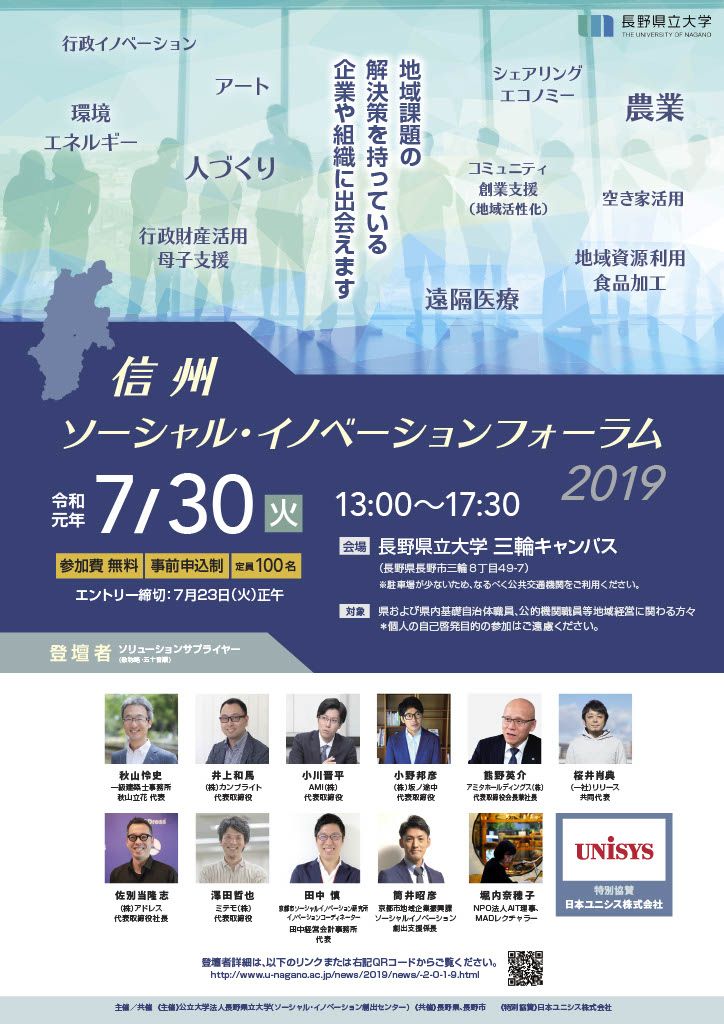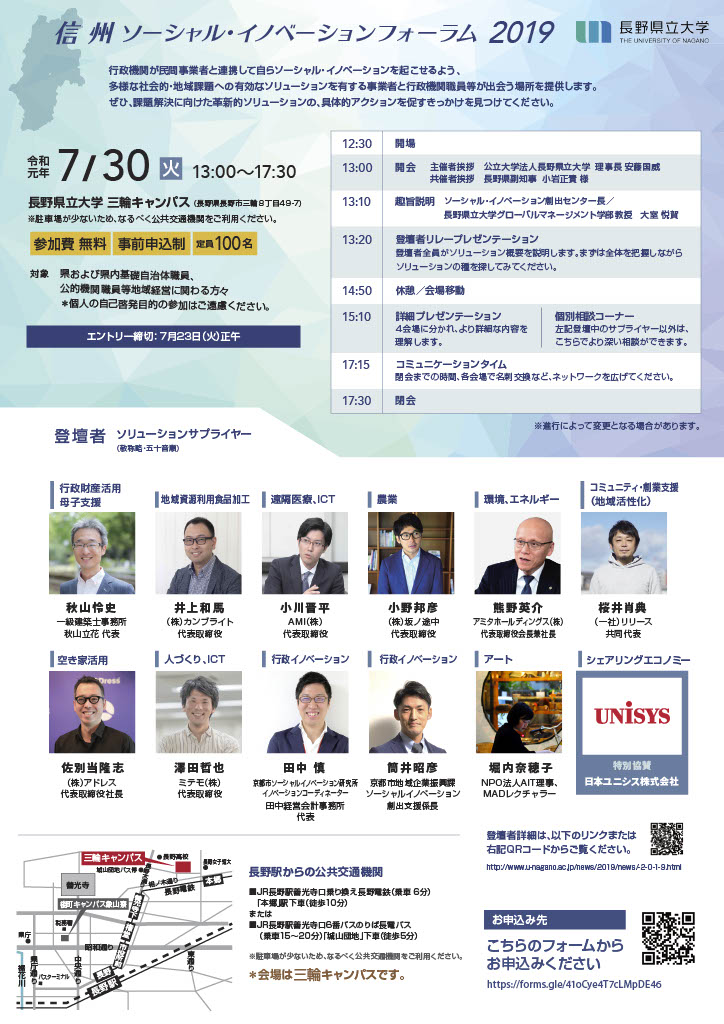Shinshu Social Innovation Forum 2019
CSI has been asked to develop an ecosystem that gives rise to sustainable businesses that do not cause problems.
Municipalities and other government agencies account for most of the many consultations that CSI has provided. This tells us that municipalities are facing difficulties on a daily basis as they stand on the front lines of local challenges and work on finding solutions to them.
Municipalities and other government agencies account for most of the many consultations that CSI has provided. This tells us that municipalities are facing difficulties on a daily basis as they stand on the front lines of local challenges and work on finding solutions to them.
In response, CSI held Shinshu Social Innovation Forum 2019 (organizer: University of Nagano; co-sponsors: Nagano Prefecture and Nagano City; special sponsor: Nihon Unisys, Ltd.) primarily for municipal personnel on Tuesday, July 30, 2019 at the university’s Miwa Campus. Solution suppliers, primarily from the private sector, who solve local challenges were invited to the forum from all over Japan as guest speakers. In addition to learning about specific solutions, the forum provided the opportunity to engage in matching of challenges faced by municipalities with solutions and expand networks, leading to specific actions.
On the day of the forum, a total of 184 participants, mostly municipal personnel, came from all over the prefecture to the Learning Hall at the Miwa Campus. Following opening remarks by University of Nagano Chairman Kunitake Ando and Vice Governor Masaki Koiwa, representing the co-sponsors, the 12 guest speakers came up one at a time to provide a condensed version of their presentation lasting around five minutes each so that participants could get an overview of what they would be hearing. Break-out sessions were held for group discussions. Participants were separated into four lecture rooms based on topic or interest so that they could gain a more detailed understanding of the efforts and interact more with the guest speakers. At the same time, guest speakers were gathered in the largest lecture room so that further questions and deeper exchange could take place, and individual consultation booths were provided. In their feedback, some participants talked about the problem-solving capabilities of private companies and understanding the potential solutions such as “In a private consultation, I was given an example very similar to my own situation, and it was very helpful” and “It was great to hear from various companies.” Another participant said that they were able to get a clear picture of their next steps in that they picked up hints for how to turn what they wanted to do into social innovation. One talked about how the forum helped them develop an enterprising mindset for solving problems saying, “The things that I come up with tend to fall within the box of tradition. I’ve become keenly aware of my unfamiliarity with the new culture that’s out there.” We're very much looking forward to the specific actions that will come about as a result of this forum.
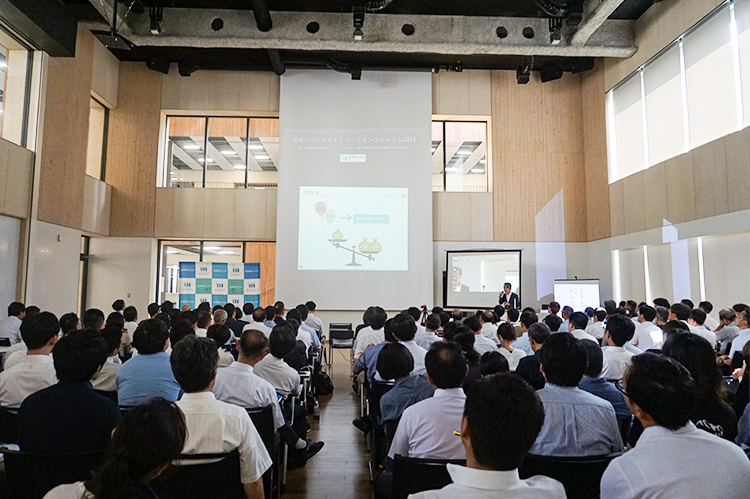
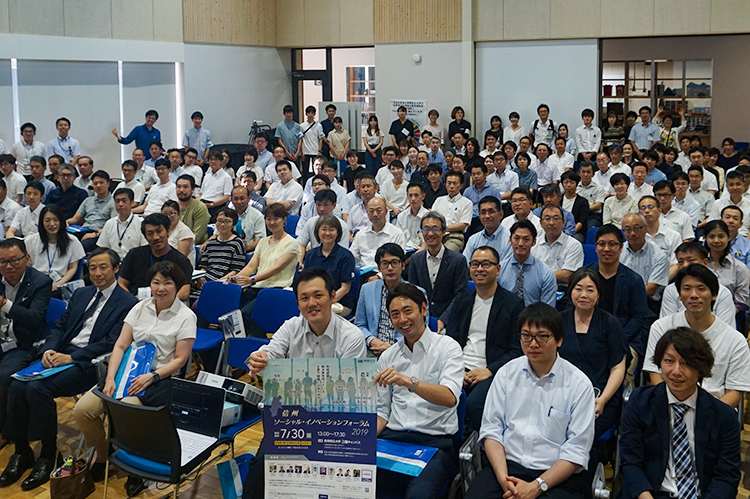
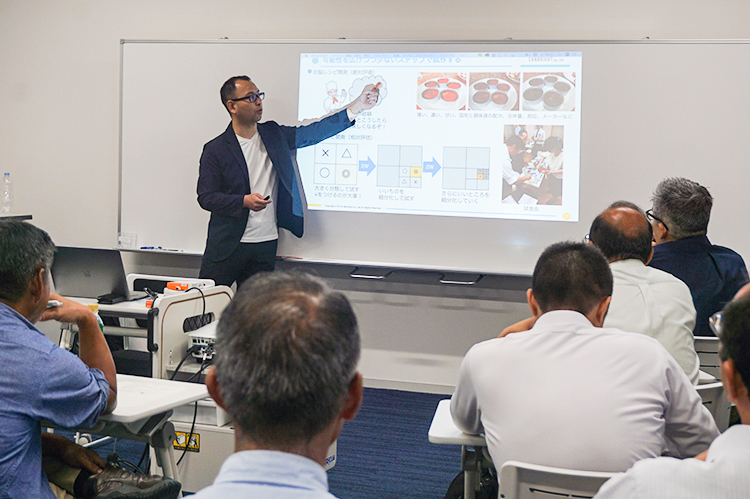
Speakers
(Japanese syllabary order)
| Name | Organization | Position | Topic |
| Satoshi Akiyama | First-class registered architect office Akiyama Tachibana | Representative | Utilization of administrative property/Support for women and children |
| Kazuma Inoue | Canbright Co., Ltd. | President and CEO | Utilization of local resources/Food processing |
| Shinpei Ogawa | AMI Co., Ltd. | President and CEO | Telemedicine and ICT |
| Kunihiko Ono | Sakanotochu Co., Ltd. | President and CEO | Agriculture |
| Eisuke Kumano | AMITA HOLDINGS CO., LTD. | Representative Director, Chairman & President | Environment/energy |
| Yukinori Sakurai | RELEASE; | Joint Representative | Community support/Ecosystem development |
| Takashi Sabetto | ADDress Co., Ltd. | President and Representative Director | Utilization of vacant houses |
| Tetsuya Sawada | mitemo Co., Ltd | Representative Director | Human resources development/ICT |
| Shin Tanaka |
Social Innovation Laboratory Kyoto/Tanaka Management Accounting Firm | Innovation Coordinator/Representative | Administrative innovation |
| Akihiko Tsutsui | Local Company Promotion Division, Commerce and Industry Department, Kyoto Industry and Tourism Bureau | Chief of Social Innovation Creation Support Subsection | Administrative innovation |
| Naoko Horiuchi | Arts Initiative Tokyo | Director | Art |
| Tsuyoshi Mukai | Business Development Department, Smart Town Strategy Division, Nihon Unisys, Ltd. | Manager | Sharing economy |
Speaker and participant comments
Tetsuya Shirasawa
Section Chief, Nagano City
About 30 municipal personnel from Nagano City and core regional urban areas participated in the forum.
For administrative personnel, it’s exceedingly difficult to get to know or talk directly with companies and organizations working on various social problems and local challenges unless they really have their feelers out, so getting to interact with many different business operators at the same time was a very precious opportunity.
The forum led to specific partnerships initiated by personnel that participated, including a project with Canbright to promote wild game and, although it was unfortunately canceled due to Typhoon No. 19, a seminar by Nihon Unisys, Ltd. providing information on smart city case studies for mostly young engineering personnel that will be involved in future urban development. It provided the opportunity for administrative personnel to become familiar with social innovation, and other personnel said they would like to work with the presenting companies on solving local challenges if such an occasion were to arise.
For administrative personnel, it’s exceedingly difficult to get to know or talk directly with companies and organizations working on various social problems and local challenges unless they really have their feelers out, so getting to interact with many different business operators at the same time was a very precious opportunity.
The forum led to specific partnerships initiated by personnel that participated, including a project with Canbright to promote wild game and, although it was unfortunately canceled due to Typhoon No. 19, a seminar by Nihon Unisys, Ltd. providing information on smart city case studies for mostly young engineering personnel that will be involved in future urban development. It provided the opportunity for administrative personnel to become familiar with social innovation, and other personnel said they would like to work with the presenting companies on solving local challenges if such an occasion were to arise.
Tsuyoshi Mukai
General Manager, Smart Town Strategy Division, Nihon Unisys, Ltd.
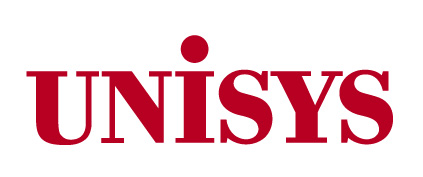
In February 2019, Nihon Unisys signed a trilateral agreement with Nagano Prefecture and the University of Nagano. At just about six months into the agreement, we cooperated with putting on this forum.
On the day of the event, I provided information on the Nihon Unisys Group’s smart town efforts and “Sharing City,” one of the examples from overseas. There was a lot of interest expressed among administrative agencies, business operators, and students from the prefecture.
As one of the results of encounters at the forum, Nihon Unisys started a “Regional Co-creation Lab” in Nagano City. The concept of the Regional Co-creation Lab is urban development that makes money, and the aim is to achieve sustainable local communities and create specific businesses. We hope to contribute to realizing Nagano Prefecture’s vision of a Shinshu IT Valley. We will promote business co-creation with many partners all over Nagano Prefecture.
https://smarttown.jp/
On the day of the event, I provided information on the Nihon Unisys Group’s smart town efforts and “Sharing City,” one of the examples from overseas. There was a lot of interest expressed among administrative agencies, business operators, and students from the prefecture.
As one of the results of encounters at the forum, Nihon Unisys started a “Regional Co-creation Lab” in Nagano City. The concept of the Regional Co-creation Lab is urban development that makes money, and the aim is to achieve sustainable local communities and create specific businesses. We hope to contribute to realizing Nagano Prefecture’s vision of a Shinshu IT Valley. We will promote business co-creation with many partners all over Nagano Prefecture.
https://smarttown.jp/
Shin Tanaka
Innovation Coordinator, Social Innovation Laboratory Kyoto (SILK)/Tax Accountant/SME Consultant
At the forum, I talked primarily about how Kyoto City and SILK have worked to expand social innovation. On an individual basis, I fielded impassioned questions from many people on things like the specific systems used by government in operations, recruiting distinctive members, and whether accountability to citizens has been ensured. I got the sense that the subject is gaining attention in Nagano.
The business environment has changed dramatically since SILK was established in 2015. Today, focus on the sustainability of society has become a global standard for companies, and failure to take an interest in social problems has become a management risk that can call the company’s continued existence into question. Moreover, up to now, the companies that SILK has supported have been working to solve social problems through their business, but recently it has become the norm for young entrepreneurs to start businesses that do not cause social problems.
By engaging in discussion with individuals facing social problems that transcend the local area amid these social changes, I got a sense of the heightened interest nationwide.
The business environment has changed dramatically since SILK was established in 2015. Today, focus on the sustainability of society has become a global standard for companies, and failure to take an interest in social problems has become a management risk that can call the company’s continued existence into question. Moreover, up to now, the companies that SILK has supported have been working to solve social problems through their business, but recently it has become the norm for young entrepreneurs to start businesses that do not cause social problems.
By engaging in discussion with individuals facing social problems that transcend the local area amid these social changes, I got a sense of the heightened interest nationwide.
Shinshu Social Innovation Forum 2019 Pre-events
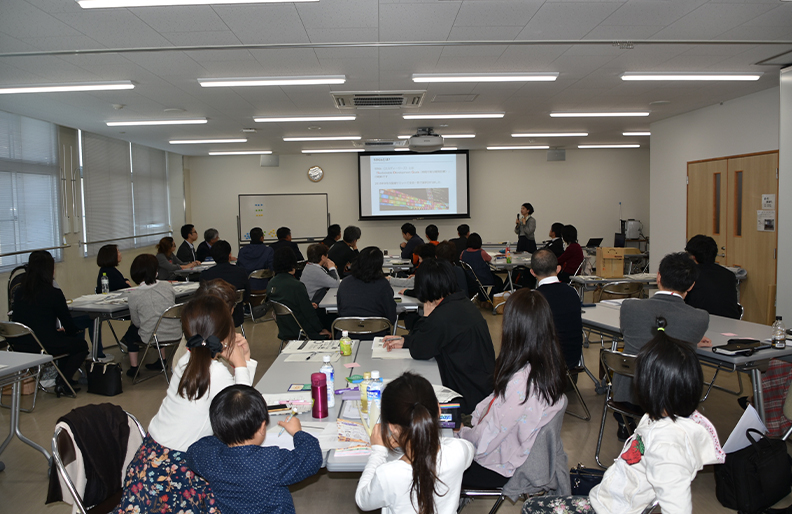
Shinshu Social Innovation Forum 2019 pre-events were held five times from late March to early July. The primary purpose of this series of events was to promote the forum. Guest speakers were invited to the prefecture ahead of the forum, and seminars, movie screenings, etc. were held on the topics below.
- SDGs (held in Nagano City and Iida City)
- Education (held in Nagano City)
- Development of Local Vitalization Cooperators and local human resources (held in Nagano City)
- Art and innovation (held in Saku City and Nagano City)
- Ethical consumption (held in Nagano City)
The topics were diverse, and support was received from nearby municipalities. Depending on the content, remote participation was made possible via online streaming when Internet access was available.
Feedback on the pre-events included, “I’ve become more convinced that I need to take action now,” “A more realistic view of the problems was shared,” and “I hope to start by making an effort to see what is out of sight.” Individual change is precisely what will influence the respective front lines, leading to major change, and I feel that I saw those signs here and there.
Feedback on the pre-events included, “I’ve become more convinced that I need to take action now,” “A more realistic view of the problems was shared,” and “I hope to start by making an effort to see what is out of sight.” Individual change is precisely what will influence the respective front lines, leading to major change, and I feel that I saw those signs here and there.

